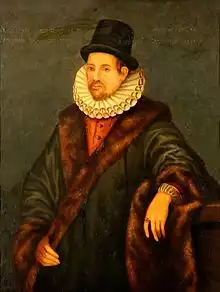Garlic and magnetism

Spelling errors are plentiful on the Internet, but none have had the long-term impact as the one made by a Roman scribe in 75 AD.
In the late 16th century, a British physician named William Gilbert spent 18 years investigating all that was known about magnetism up to that point. Although he didn’t know it at the time, he was also investigating static electricity because he thought amber was magnetic since it attracted certain materials.
He published his findings in a book called De Magnete. The 1900 English edition by Chiswick Press* is available (for free) at Project Gutenberg.
The book debunked some beliefs that had persisted for over 1500 years, mainly because the Church stifled scientific research a bit back then with threats of death. One such belief has to do with garlic. It was believed that garlic destroyed magnetic properties. Sailors were not allowed to chew garlic near a ship’s compass.
Gilbert traced the origin of the erroneous myth to a defective copy of a book written by Roman author Pliny the Elder in 75 AD or thereabouts. The book's scribe substituted the Latin word allio, meaning garlic, for alio, which means “other”.
I came upon mention of this in the 2007 book Much Ado About Almost Nothing: Man's Encounter with the Electron written by Hans Camenzind. Hans is the creator of the 555 timer chip, which is possibly the most used analog semiconductor device on Earth.
Donald Trump and magnets
On January 6, 2024, former president Donald Trump said that water destroys magnets.
This is a belief to be expected from someone living in the 16th Century or earlier. Debunking this should be pretty easy. You can do a demonstration with a glass of water, as I've done.
You can also argue that the Earth is a magnet, and about 70 percent of its surface is covered with water. Yet, it continues to have magnetic properties. But, you run the risk of people knowing that the Earth's magnetism comes from it's molten iron core that does not have direct contact with the oceans.
* The title is "ON THE MAGNET, MAGNETICK BODIES ALSO, AND ON the great magnet the earth; a new Physiology, demonstrated by many arguments & experiments."